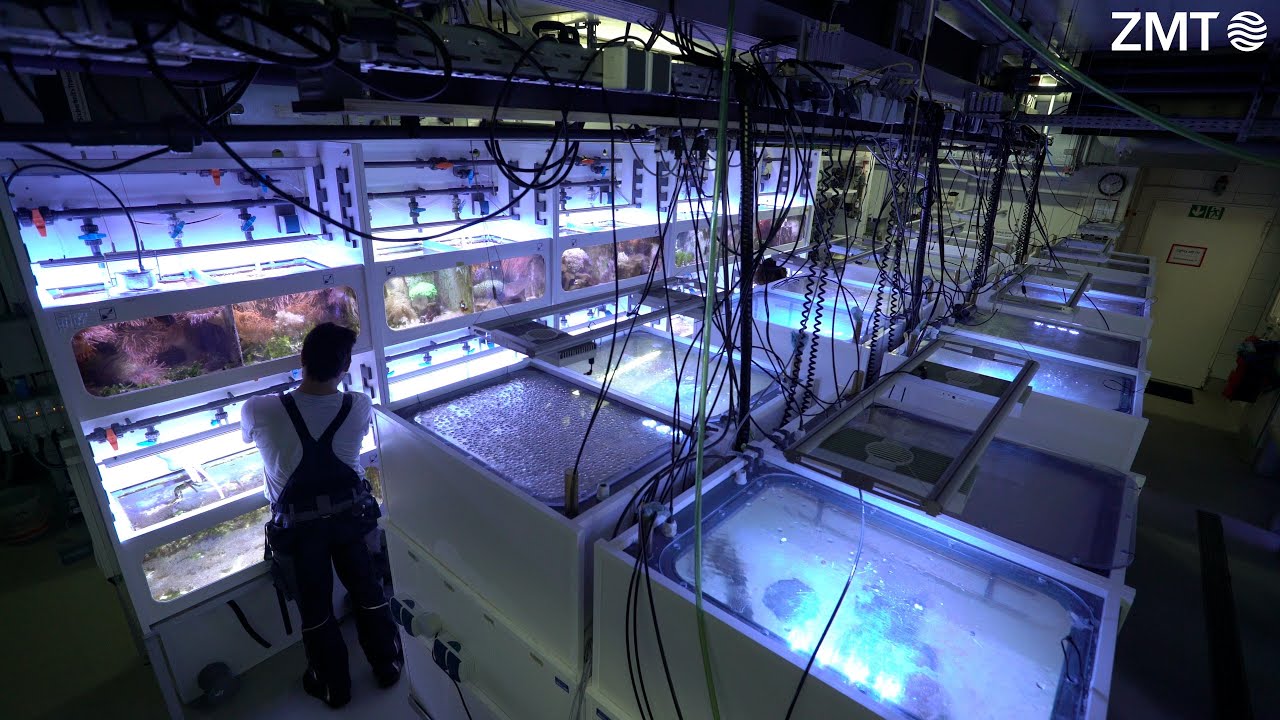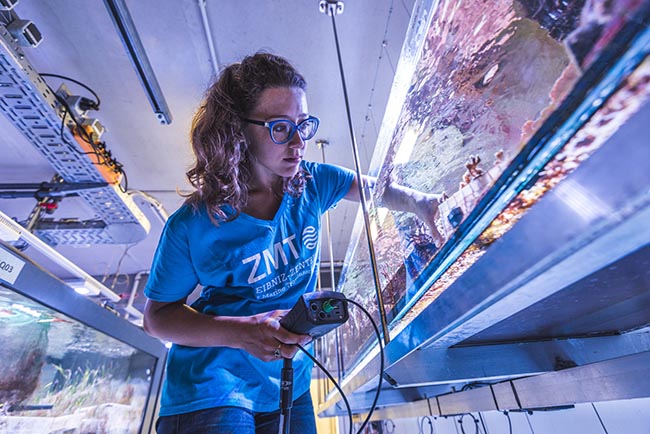The ZMT runs a marine experimental facility (MAREE) to cultivate and rear tropical organisms throughout the year. Ecophysiological experiments can be conducted in a simulated tropical marine environment. The flexible infrastructure offers more than 60 experimental seawater aquaria in several independent recirculating systems (>10 m³ water volume).
In addition, 24 mesocosms (>300 l water volume each) allow investigating responses of communities to environmental stressors. Reservoir tanks provide more than 50 m3 of artificial seawater to ensure experiments with controlled water parameters. A gas mixing system enables the scientists to simulate pre-industrial, present-day and future atmospheric CO2 concentrations to conduct ocean acidification experiments.
Introduction to the work of the MAREE on YouTube:
 By clicking on this preview image, you consent to content being downloaded from YouTube or Google (USA). As a result, YouTube or Google (USA) receives the information that you have accessed our site and the data technically required in this context. We have no influence on further data processing by Google. Further information can be found in our privacy policy.Watch on YouTube
By clicking on this preview image, you consent to content being downloaded from YouTube or Google (USA). As a result, YouTube or Google (USA) receives the information that you have accessed our site and the data technically required in this context. We have no influence on further data processing by Google. Further information can be found in our privacy policy.Watch on YouTube
The research concept of the MAREE comprises three general areas:
Supplementing ecological field studies
Many research projects at ZMT include field studies aimed at understanding ecological and biogeochemical processes in tropical marine ecosystems. The MAREE is well equipped to conduct a variety of laboratory experiments, making it possible to distinguish between relative effects of different environmental factors on marine organisms. Thus, the influence of e.g. water temperature, ocean acidification and nutrient concentration on study organisms can be analysed selectively.
Breeding of economical and ecological key species
Monocultures of microalgae and zooplankton make it possible to rear delicate marine planktonic larvae of invertebrates and fishes. At ZMT, Researchers investigate difficulties and aim to optimise breeding mechanisms in reproducing both sensitive marine ornamental and aquaculture organisms. In addition, the research focus also comprises so-called “ecosystem-engineers” - organisms with important functional roles in their ecosystem such as corals and macroalgae.
Ecophysiological experiments
Ecophysiological experiments help to understand how organisms interact with their environment. Since the environment is changing, the effects of different environmental parameters on metabolism, physiology and live cycles of marine key organisms gain in importance. At ZMT, selected parameters and potential indicator processes and species are investigated. At present the impacts of ocean acidification and increasing pollution in coastal ecosystems such as seagrass meadows are in focus of interest. In the light of climate change, scientists additionally investigate the physiology of tropical organisms exposed to changing water temperatures and oxygen conditions, e.g., by conducting respiration measurements.





